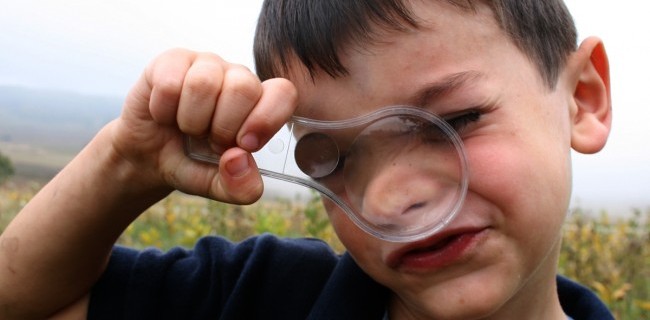 When you come to a lonely looking road after a wrong turn, your immediate reaction may be one of annoyance – or even terror. Granted, the terror may be warranted if it happens to be dark or the lonely road happens to have skulls stuck on the fence posts.
When you come to a lonely looking road after a wrong turn, your immediate reaction may be one of annoyance – or even terror. Granted, the terror may be warranted if it happens to be dark or the lonely road happens to have skulls stuck on the fence posts.
But if it’s just your average lonely looking road on your average sunny day and your wrong turn isn’t making you late for an important appointment, how you view the road can have a big impact on your overall state of mind.
If you view the unknown road as an opportunity for adventure, or if you are curious about what lies down that road, your life may actually be more fulfilling. Or at least an article in TIME magazine and a chapter in the Oxford Handbook of Positive Psychology say it can be.
“People who are regularly curious and willing to embrace the novelty, uncertainty, and challenges that are inevitable as we navigate the shoals of everyday life are at an advantage in creating a fulfilling existence compared with their less curious peers,” according to the Oxford handbook’s chapter “Curiosity and Interest: The Benefits of Thriving on Novelty and Challenge.”
While being curious about that lonely looking road may not make your driving fears instantly evaporate, it can change your outlook on the situation. Instead of viewing the road as a horrible, ominous thing, you can view it as an opportunity for a thrilling adventure, or at least different and new.
An overall positive outlook makes it tougher for negative thoughts to set in which, in turn, can help quash your driving fears or any fears that come traipsing through your brain.
Curiosity Explained
Curiosity is a desire for exploration, and it doesn’t always involve heading merrily down a lonely looking road. Acting on curiosity can involve a number of behaviors, which the Oxford handbook says include:
- Asking questions
- Examining images
- Reading deeply
- Undertaking challenging tasks
The goal of curiosity is to explore, learn or otherwise “immerse oneself” in whatever is making him or her curious. The TIME article draws on info from Carnegie Mellon University professor George Lowenstein’s paper “The Psychology of Curiosity.” It adds that curiosity arises when we sense a gap in our knowledge and we wish to fill that gap with information.
So How Does This Make Our Lives More Fulfilling?
Consistently “filling the gaps” with knowledge can eventually result in:
- A broader knowledge base
- Increased competence and confidence
- Wider comfort zone
- Learning new skills
- Meeting new people
- Expansion of goal-directed efforts
- Motivation to get out of your armchair and go live life!
Curiosity can also immediately result in what is known as “mindful immersion,” which is the total absorption by what’s directly in front of you. It’s living in the moment to the hilt, and living in the moment is another way to exile driving fears and anxiety, with are usually rooted in something that happened in the past or the worry of something that may never happen in the future.
Ready to “get curious?” Stay tuned for our post that will show you how!
SOURCES:
Photo Credit: woodleywonderworks via Compfight cc







